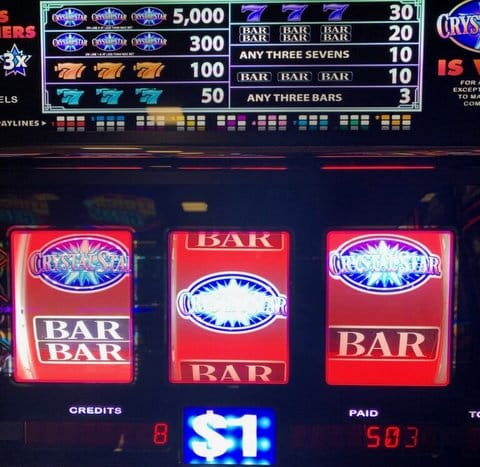
11 Oct Don’t Gamble, Kids. It’s Not Worth the Risk

(The CC Pulse file)
Commentary, Ronvel Sharper
Gambling comes in many shapes and forms. In our current society, such activities are abundant. Whether it’s through online gaming or playing school games competitively, more and more youth are becoming budding gamblers. Why is that?
Online gaming is becoming increasingly prevalent in our society. Many games are taking on a gambling aspect with loot boxes and other luck-based arithmetics that prey on the young and meek. In the video game Overwatch, for example, there is a set amount of loot boxes one can unlock through the game. If those don’t get you what you desire, you can pay to buy even more. Now, considering how popular gaming is among children and teenagers, isn’t that basically priming the youth to be future gamblers?
I and three others spoke to high school students Sept. 22 about gambling and how it can affect their cognitive ability, psychological state and so on.
I explained to them what gambling actually is: playing any game, whether a game of skill or chance, that involves financial risk. That doesn’t necessarily mean money is at stake. “Financial risk” can relate to anything that is worth something to you. It could be your new kicks, your new necklace, your marriage, your house — literally anything can be gambled as long as it has some value to it.
Gambling takes many forms. It is traditionally part of card games such as blackjack and poker. But it can also come up in otherwise family-friendly games such as marbles or Monopoly or in online games, with Call of Duty tournaments, Overwatch tournaments, etc. As long as there’s a risk on your part if you lose, that can be defined as a gamble.
There’s also the act of betting on things like sports or the lottery. Indeed, many people find themselves buying scratchers, hoping to strike it big.
Speaking of the lottery/scratchers — those “hot numbers” that are supposedly rolled more often than others? That’s a myth. The lottery is completely randomized, hence the extremely low draw rate. The lottery may be only a dollar (or a few dollars), but keep in mind that statistically speaking, you are much more likely to be hit by a car, swarmed by killer wasps, or hit by lightning than win.
The lotto’s not the only thing to watch out for. So-called gambling profs win big in gambling related activities and write books touting their secrets. Think about it for a second: If you had the secrets to becoming a successful gambler and continuously scored big in the casino, why would you share the secrets of your success?
The name alone is deceptive. Most people take “prof” to mean “professor.” Some even call themselves “professor” in this profession. Really, they’re simply pro gamblers. It’s misleading at best, an outright scam at worst. Gambling is dancing with lady luck herself; there is never a surefire way to win. There will always be uncertainties. You can never guarantee your starting hand in poker, your opponent in any game, or the environment you have to play in. All these forces can lead you to win or lose, and they can change at any time.
>>>Read: Props 26 and 27 Could Help Some Tribes, But Not All
Another myth about gambling is that playing more equals more winnings. That is a lie. Actually, quite the opposite is true: The more we play, the more we lose. We have a minuscule chance of winning the slots because of “house advantage.” That essentially refers to how much money the casino expects to keep from your wagers. As you may have heard, the house always wins.
Casinos attract people into their adult playground with bright, flashy lights and grand halls to give the impression of luxury and high class. The machines going “ding ding ding” gives potential players a feel that this is a lucky place. Those sound effects play even when no one’s playing the machines. The casino floors often have no clocks or windows, making it hard to keep track of time or the outside world. The casinos also may have perks like free drinks for regulars to coax them into staying longer. You make better decisions when drunk, right?
Casinos are also very keen on making one pay with alternatives to cash. When you pay with a card, for example, it is very easy to forget how much money you do — or don’t — have. If you have cash on you, you are more likely to be aware of how much you’re spending since you actually see how much you have left. The fact that the casinos are built like a labyrinth on the inside doesn’t help either. Imagine looking for the bathroom but seeing nothing but games and deciding to hold it for the sake of potentially winning? That’s how they get you.
Don’t give in to Lady Luck’s illustrious allure. Save your money. If you must gamble, only gamble what you can afford. But really, you’re better off not gambling at all, though. Don’t put yourself in a position where you need to be bailed out of serious problems because you gambled your hard-earned money away.






No Comments